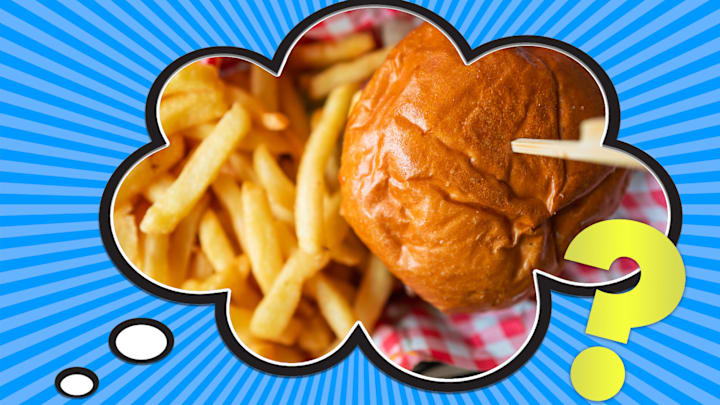Diners are best known for two things: Having literally anything you want, from grilled cheese to fried haddock, on their menu; and for offering a “blue plate special," which promises some kind of tempting entrée for a great price.
But what makes a pile of diner food blue-plate worthy? And what exactly is “blue plate” supposed to mean?
According to CulinaryLore, the origins of the phrase might date to 1892, when diner proprietor Fred Harvey was serving up quick and cheap meals to railroad travelers at his Harvey House chain. Harvey’s “blue plate” was a disposable plate that had divided sections: pretty much anything piled on it was a “blue plate special.”
How could a railroad chain influence an entire industry? Simple. Harvey’s locations were renowned for their quality, cleanliness, and convenience at a time when a lot of roadside eateries or railroad stops were anything but. (Restaurant owners along travel routes, realizing travelers were just passing through, weren’t concerned about food quality, as customers rarely came back.)
Another possible source of the term could stem from porcelain plates made with a Blue Willow pattern that were used on railroad dining cars. In either case, “blue plate” was associated with good food, cheap food, or a combination of both.
The phrase took on greater meaning during the Great Depression, when budgets were stretched thin. A blue plate special was synonymous with getting proteins and side dishes in generous portions.
Today’s diners don’t necessarily serve specials on blue plates but still continue to use the phrase because it suggests you're getting a meal deal. The only caveat? Blue plate specials typically aren’t customizable.
[h/t CulinaryLore]
Have you got a Big Question you'd like us to answer? If so, let us know by emailing us at bigquestions@mentalfloss.com.
